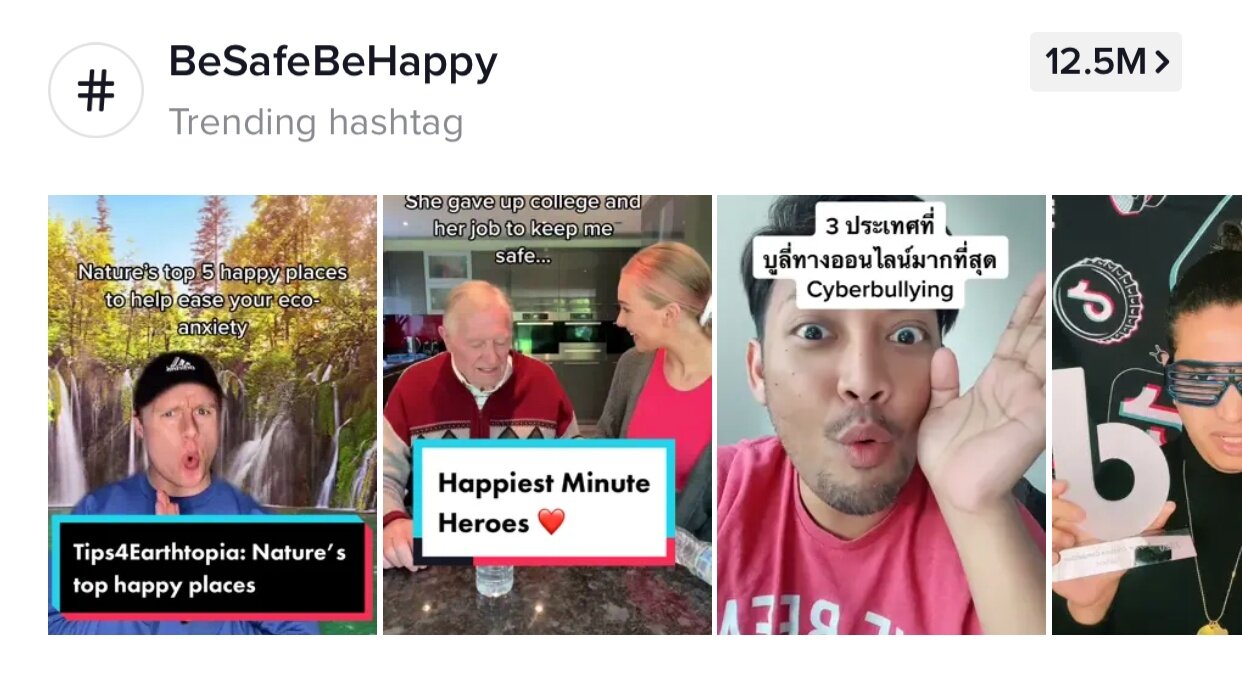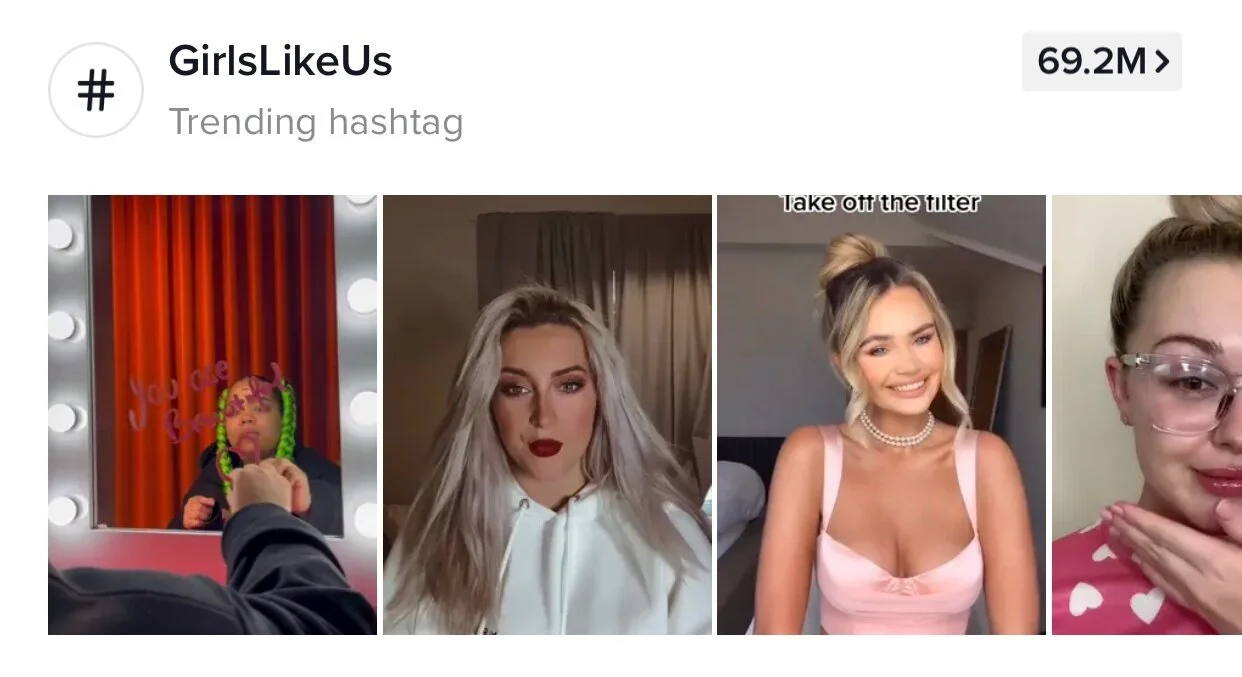TikTok influencers: How to work with them, and how TikTok content really works
TikTok influencers are still a relatively brand-new element of the influencer marketing scene, and thus one of the most sparsely understood. Between the social video platform’s unique, short-form content, incredibly fast-moving and spontaneous culture of content creation and star-making, and the myriad bespoke tools and in-built mechanisms that make TikTok the distinct, cultural environment that it is, embarking upon TikTok influencer activity can be a bamboozling and confounding journey for many marketing teams.
That’s likely why, despite the platform’s colossal surge in popularity over the last year, many brands are still failing to engage with it, and even less are failing to engage with it well. And that’s a shame. Because there are huge gains to be made by working with TikTok and TikTok influencers effectively. But to do that, you do need to understand its culture and methods. As such, we’ve created this crash-course in TikTok, TikTok influencers, overall TikTok culture, and how to combine all three to get the best results. Naturally, we’ll be updating this article as things evolve and grow (as is TikTok’s fundamental way), but for now, these are the topline details you need to know.
TikTok influencer marketing isn’t about sending messages, it’s about building movements
TikTok influencer marketing requires a very different kind of thinking than you’d apply to more established platforms. That’s because unlike some other platforms, TikTok primarily recognises and rewards creativity and involvement in fast-evolving creative movements, trends, and hashtags, rather than simply prioritising follower-count in the content it promotes.
Thus, it’s a good idea to create content that exhibits (and then encourages) authentic, organic creative responses, especially if they can be bound together as a coherent project or community movement. Look at your TikTok following not as a passive audience, but as an active collective of content creators and TikTok influencers, with your own content - whether you deliver it directly or via a partner channel - acting as a catalyst that triggers them to contribute.
The fundamental difference with TikTok is that everyone on there is both a creator and a consumer, and the platform’s tools, framework, and algorithm are all calibrated to reward that culture. Thus, you don’t simply make a splash on TikTok by building a large audience of direct followers and hitting them with top-down messaging. You really succeed on TikTok by encouraging mass community creativity around the subjects and messages you want to discuss, and letting those movements and trends build the momentum and awareness you need as the platform’s algorithm picks them up.
TikTok influencer marketing is about collaborative creativity
As for the specific tools and methods you should apply to TikTok influencer content in order to gain traction and visibility within the community, it’s all about collaboration, and providing avenues for users to express their creativity. Duets (an in-built mechanic that lets users mash up their own creative output with another user’s existing post) are one of TikTok’s key tools for community interaction, connection, elevation, and creative expression.
By posting content that encourages Duets, you’re effectively providing stimulus and assets to allow users to craft their own personal creative content around your own. As such, Duets are a hugely powerful - and versatile - way to drive community trends of activity around specific brands and themes. They’re one of the core means of signalling your content as true TikTok native, and thus a huge (and platform-authentic) boon to branded TikTok influencer projects. And by driving mass community contributions, they’re also fertile ground for sourcing grass-roots audience content to repurpose as official compilation and promotional material further down the line.
Top TikTok influencers are constantly appearing
@fitwaffle FRENCH TOAST ROLL UPS RECIPE! Measurements on Fitwaffle I G ##breakfast ##foryou ##fitwaffle ##desifood
♬ original sound - fitwaffle
Above: Indulgent food channel FitWaffle made astronomical audience growth upon segueing from Instagram to TikTok
TikTok influencers (at least by the traditional, ‘big, established channel with large follower-count’ definition) appear and evolve at a much faster rate than you’ll find on other social video platforms. That’s because of the rather different philosophy taken by TikTok’s content sharing algorithm. Where other platforms - Instagram, for example - largely reward follower-count in their decisions over whose content to push to a wider audience, TikTok focuses on creativity, and engagement with breakout social trends.
The upshot is that creative, active TikTok users whose content is enjoyed can quickly blow up to gain massive views and followings in a matter of days (and for a technical breakdown of how that happens, check out our video on the secrets of TikTok success, explained in under two minutes). In terms of tracking which TikTok influencers to partner with on TikTok influencer marketing projects, the fast-moving nature of the platform can make things challenging to research. But it does also make TikTok incredibly an fertile, vibrant environment for creative partnerships, as well as one that can help you really understand and engage with your audience’s culture in a whole new way, simply by observing the kind of material they produce and respond well to when encouraged.
TikTok influencer content can tell long-form narratives
Above: TikTok’s ConsumingCouple are currently eating their way around the world, without leaving New York
When looking to engage and partner with TikTok influencers, do not assume that TikTok’s short-form nature means that it demands only isolated one-shot content of limited scope. To reiterate, TikTok is a culture that thrives on contributing to trends, memes, themes, and evolving creative movements. That means that there’s real scope to succeed with ongoing, connected episodic content. To optimise this, it’s a good strategy to create content that lends itself to narratives, either though community CTAs to expand on content ideas and threads, or through the use of hashtags to create multi-part series.
Long-form structures and evolving stories are welcomed and rewarded, and have already become standardised formats in TikTok culture, such as in the recurring use of the #30daychallenge hashtag. This approach drives long-term, TV-style engagement with a channel’s content, and also leverages the algorithm’s preference for promoting hashtags and trends earning repeat attention.



